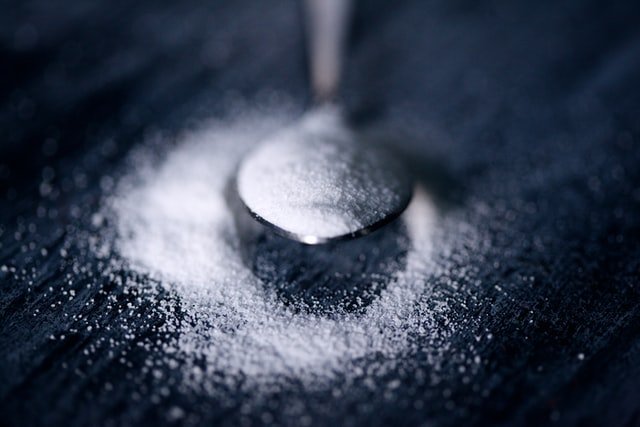These illnesses are on the increase in the Western world due to the rise of processed and convenience foods, which are laden with added sugars. Often then, it is not our fault that we are consuming so much sugar because we are eating it without realising. However, it is our responsibility to educate ourselves and to take action. We have become lazy and reliant on these convenient foods. They fit in around our busy lifestyle. We don’t need to spend hours in the kitchen cooking. We can just take something out of the fridge or freezer and put it in the microwave or oven. We don’t question the ingredients, we just like the taste. And here is where the problem lies. Clever marketing and branding persuade us that we are eating healthy foods. Often foods are described as being good for us because they are ‘low in fat’, however these foods are usually high in sugar. Often foods low in fat are bland and therefore sugar is added to make it more palatable. It’s easy then to become confused about what is good for us and what isn’t. Telling us that the food is reinforced with iron or vitamins or whatever, takes our eye off the fact it is so high in sugar.
In any event, regular consumption of sugar is likely to lead to cravings for more. There are two reasons for this. Firstly, sugar elevates dopamine levels in the brain. Dopamine is our feel-good hormone and is responsible for feelings of pleasure and reward. A study undertaken by Dr David Ludwig found that the part of the brain that lights up when eating sugar is the same part of the brain that’s triggered by Cocaine or Heroin (6th July 2016. Ludwig, Your Brain on Fast Acting Carbs). Long term consumption of sugar can lower the levels of Dopamine released, meaning more sugar is required to give the same feelings of pleasure and reward. This is what the brain gets addicted to, much in the same way as other drugs and addictive substances.
The other reason we may crave sugar is because of how it is processed in the body. Sucrose, or refined sugar is made up of fructose (fruit sugar) and dextrose (glucose). Glucose is absorbed quite quickly and is used for energy. It is transported in the bloodstream and is metabolised by most cells in your body. Fructose, however, can only be processed by the Liver. Excess Fructose is converted into fat and stored in the liver (causing Fatty Liver), in the bloodstream and deposited in fat cells around organs and midriff. Normally, when we have had enough to eat, our body produces a hormone called Leptin, this tells our brain we are full. When the liver is processing fructose, it is not able to release Leptin and so we do not get the signal that we are full. Hence, we continue to eat sugar even when we are full, we just don’t realise it. That why, we still feel hungry and not completely satisfied after having fast food like burger and chips. If dietary changes are not made, the pancreas eventually stop working and it is this which causes Type 2 Diabetes.
If you are eating high levels of sugar, it is likely that both processes are at play. Whilst these chemical events taking place, both processes involve the brain, most notably, the hypothalamus, which is the part critical to the flow of hormones and homeostasis. The hypothalamus is located in the deep subconscious part of the brain.
Any craving begins with an event, say eating a cream cake, which stimulates the brain’s reward system giving a feeling of pleasure. The brain then wants to repeat this experience over and over again. The anticipation of pleasure then creates a desire or a craving. This can become so strong that the brain will release stress hormones making the craving or desire even stronger so you can’t think of anything else. Long-term use can also desensitise the reward feeling, meaning that a greater amount is needed to satisfy the brain and produce the reward. This is now a disorder or an addiction. The rational part of the brain, the conscious part, now has very little influence over the subconscious, even when it knows harm is being caused.
Cutting or reducing sugar intake can be difficult once addiction has taken hold. Of course, you can use pure willpower, but this will be almost like your conscious rational mind fighting your subconscious automatic mind. And as we now know, your conscious mind will have little to no influence over your subconscious. This is why smokers crave the next cigarette, alcoholics the next drink and drug users the next fix. It is no different with sugar!
Hypnosis can be very effective in controlling cravings, reducing or cutting down on sugar (and other addictive substances) because it works with the subconscious mind. Hypnosis can help you to program your subconscious mind to disassociate feelings of reward with sugar. It can reinforce your subconscious mind to eat healthy foods and it can help you deal with stress and emotions which can be triggers to eating sugary foods.
Using hypnosis, you are more likely to successfully cut sugar from your diet, putting you back in control of your health and reducing your risk of disease.
Jacqueline Carson, DipHyp, GQHP, CNHC, GHR

